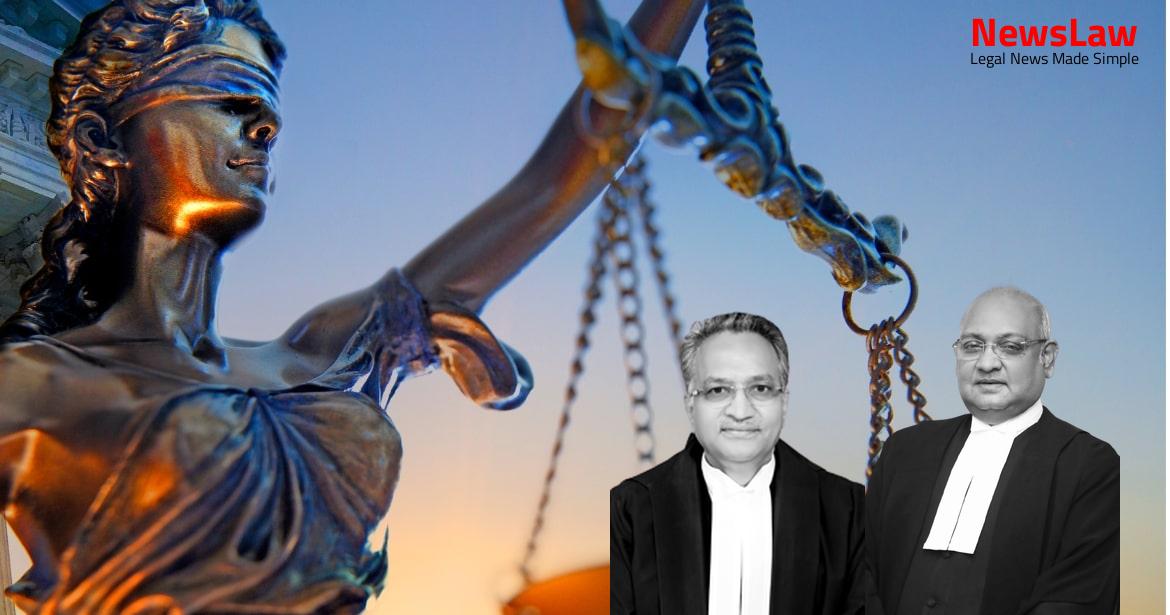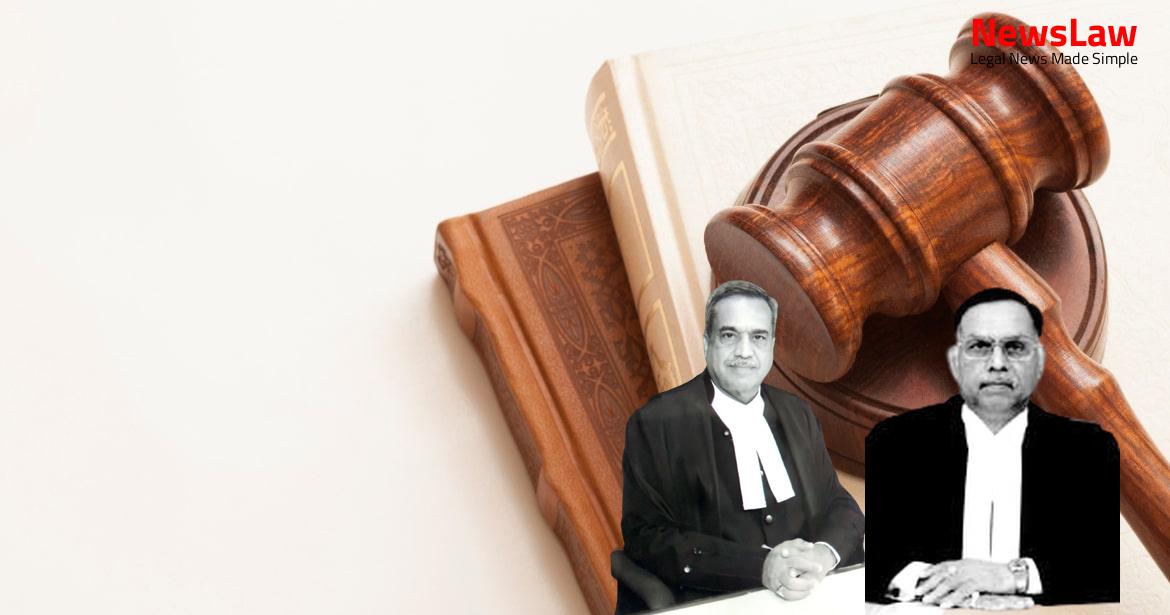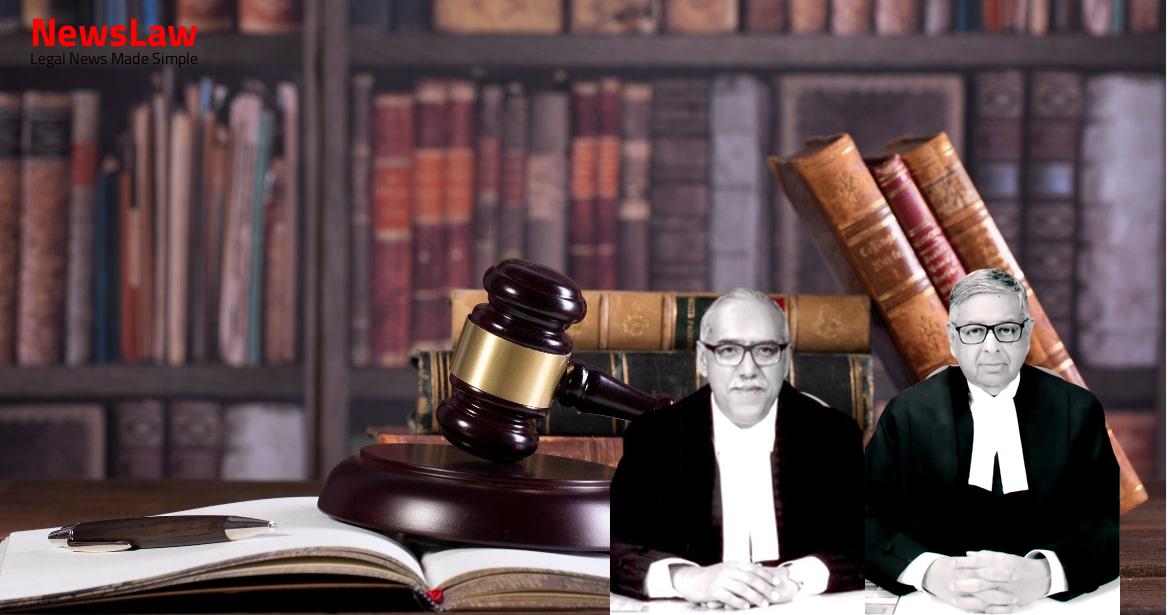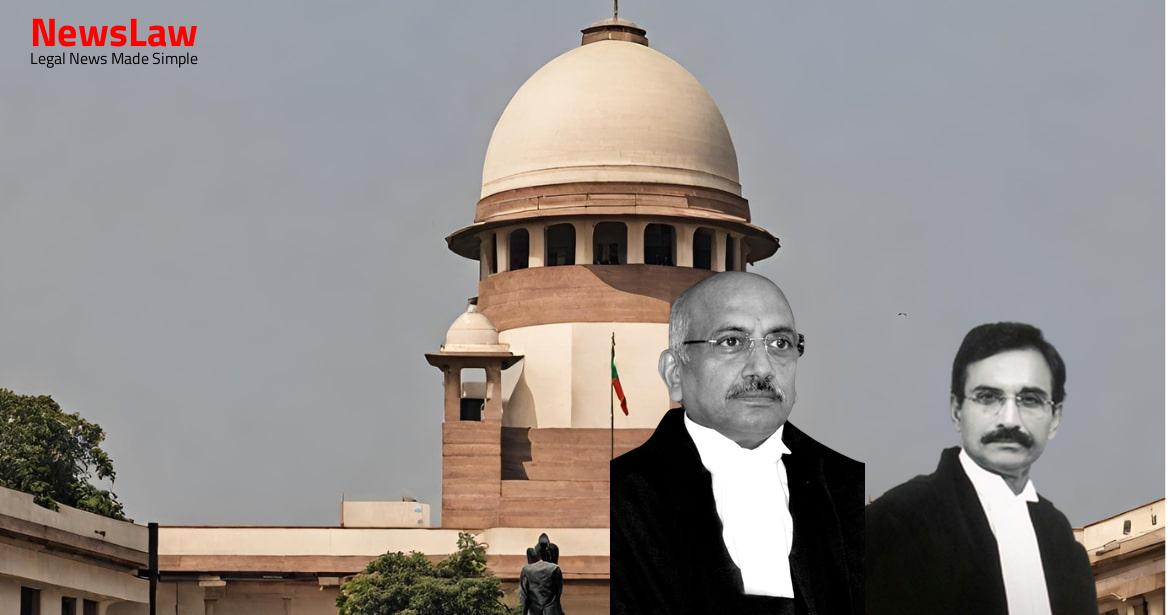This legal analysis focuses on the complexities surrounding compulsory retirement under Rule 135 in a recent court case. The court examined the constitutional validity, procedural safeguards, and the interplay between different articles and rules governing public service. Dive into the detailed legal scrutiny of the case to understand the implications it holds for similar scenarios.
Facts
- The appellant joined the Research & Analysis Wing on 22.2.1988 as ‘Directly Recruited’ under the Research & Analysis Service.
- She held various portfolios during her term of service, including the post of Director at the Training Institute in Gurgaon from 2.7.2004 to August, 2007.
- On 3.8.2007, she was posted as Director at Headquarters in New Delhi.
- The appellant filed a sexual harassment complaint on 7.8.2007 against Shri Ashok Chaturvedi and Shri Sunil Uke, alleging they asked her to join a sex racket within the Organisation for quicker promotions, and when she refused, she faced persecution.
- The Tribunal found the compulsory retirement order violative of Articles 14 and 311 of the Constitution.
- The Tribunal did not declare Rule 135 as unconstitutional but emphasized that a subsidiary rule cannot override guaranteed rights of an officer with years of service.
- The Tribunal held that the applicant was denied the protection of law, a fundamental right under Article 14.
- Due to this denial of protection, it was deemed unnecessary to further discuss the constitutionality of Rule 135 (1)(a) or declare it void.
- The Tribunal noted that Rule 135 (1)(a) contravenes clause (2) of Article 311.
- The respondents challenged this Tribunal order in the High Court which, in an elaborate judgment, reversed the decision and upheld the compulsory retirement under Rule 135.
Also Read: Land Acquisition Challenges for Integrated Infrastructure Project
Issue
- The issue at hand is whether the refusal to issue summons to the respondents without prior sanction under Section 197 of the Cr.P.C. is just and proper.
- The constitutional validity of Rule 135 has been upheld and the power of compulsory retirement has been determined to exist.
- The next issue to be determined is whether the power of compulsory retirement exercised by the respondents in the present case is just and legal.
Also Read: Analysis of Legal Issues in Property Dispute Case
Arguments
- Respondents argue that the O.M. dated 16.7.2015 outlines the procedure to be followed by the Complaints Committee, ensuring sufficient involvement of the victim/complainant.
- Complaints Committee is granted the status of an inquiring authority and follows the procedure as per Rule 14 of CCS (CCA) Rules.
- The respondents believe that the current procedure maintains a legal balance in the employer-employee relationship, complying with the State-citizen interaction.
- The appellant alleges that the recording of observations on her psychological state of mind was an act of fabrication by the respondents and not within their official duties as Committee members.
- The appellant contends that the power to retire compulsorily should only be exercised in accordance with FR 56(j) and not Rule 135.
- It is argued that Rule 135, which allows for compulsory retirement, violates Article 311 of the Constitution dealing with dismissal, removal, or reduction in rank of employees.
- The appellant contends that Rule 135 does not provide for procedural safeguards as required under Article 311, leading to a denial of equal protection of law and violating Article 14.
- The appellant argues that Article 309 and Article 311 cover separate aspects of public service, and Rule 135 does not fall under Article 309.
- The appellant criticizes the lack of provisions in the rules for the victim/complainant to receive the report of the Complaints Committee in certain situations.
- The respondents claim that Article 311 does not apply to cases of compulsory retirement since it is limited to dismissal, removal, or reduction in rank.
- The respondents argue that the sanction was deemed to be granted as it was not refused within the specified time frame under the CCS (Conduct) Rules.
- The appellant accuses the respondents of acting in a mala fide manner and using Rule 135 to victimize her for refusing illegitimate demands.
- The appellant insists that Rule 135 should take precedence over general provisions like FR 56(j), as seen in relevant court cases.
Also Read: Legal Analysis on Levy of Customs Duty on Non-Excisable Goods Sold in Domestic Tariff Area by an EOU
Analysis
- The right conferred on the appropriate authority is absolute and can be exercised based on public interest.
- Compulsory retirement does not imply civil consequences or penal actions.
- Rule 56(j) allows the government to retire an employee if it deems it in public interest.
- The concept of reasonable opportunity cannot be rigidly defined.
- Rule 135 operates in situations involving intelligence officers, ensuring the security of the organization and the country.
- The rule excludes the strict adherence to principles of natural justice for the greater public interest.
- The power to adjudicate under the Tenth Schedule should not be viewed as unusual.
- Orders of removal, dismissal, and retirement have distinct consequences and implications.
- Compulsory retirement under Rule 135 is grounded on security concerns and is not considered punitive.
- Judicial creativity should not override legislative intent when it comes to service rules.
- FR 56(j) provides the government with the right to retire an employee after the age of fifty-five if it is deemed in the public interest.
- Rule 135 of the 1975 Rules outlines the grounds and benefits for compulsory retirement of an officer in the organization.
- Article 311 pertains to the dismissal, removal, or reduction in rank of civil servants and the inquiry process that must be followed.
- Rule 9(1) gives the President the authority to withhold or withdraw pension based on grave misconduct or negligence found in departmental or judicial proceedings.
- The petitioner/appellant appeared and argued in person with utmost dignity and displayed a dignified demeanor towards the Court.
- The emotional appeal connected with the case does not warrant additional compensation to the petitioner.
- Observations on procedural improprieties and following Vishaka Guidelines, as well as the transfer of the petitioner, do not constitute an adjudication of criminal liability of the officers.
- The question of criminal liability of the officers has not been adjudicated in any preceding case so far.
Decision
- Rule 135 of the 1975 Rules is held to be valid and not unconstitutional.
- The expression ‘may’ in sub-Rule (2) of Rule 135 should be read as ‘shall’ for proper implementation.
- The order of compulsory retirement against the appellant/petitioner is deemed valid and legal.
- The High Court’s decision on compulsory retirement is confirmed with some modifications.
- Appellant/petitioner must vacate the government accommodation in three months and no penal house rent charges are to be levied for the next three months.
- Pension for the appellant/petitioner will be computed based on the date of notional superannuation as directed by the High Court.
- A compensation of Rs. 1,00,000 is to be paid to the appellant/petitioner for violation of fundamental rights.
- The appeal is dismissed and the petition is disposed of.
Case Title: NISHA PRIYA BHATIA Vs. SHASHI PRABHA (2020 INSC 355)
Case Number: Crl.A. No.-000413-000413 / 2020



